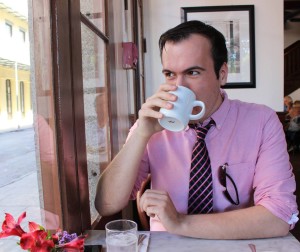My last stand
October 5, 2013
This week’s editorial is all about clearing the air, so I’m going to allow myself to be moved by the spirit and divulge a secret not many people know: I never desired to be the executive editor of The Observer. I never thought about joining the college newspaper staff when I first came to Case Western Reserve University. My right to pen an Editor’s Note at this very moment—in my mind—represents a gigantic mistake that I’m shocked nobody has noticed.
And yet I here I sit; my career with The Observer is a happy accident that started almost four years ago. I succumbed to peer pressure and kept a friend company during an interest meeting for aspiring reporters. I knew my ability to say no to things was a problem, and I’ve been enduring the effects of my decision to write one article—about a traffic accident—for the entirety of my college career.
It’s funny how things change.
The Observer has altered me to my core, and I don’t say that lightly. When I look at people, I see stories in their faces. When I look at leaders, I envision the organizational hierarchy that connects them to their colleagues. When I look at organizations, I think of politics and monetary funding.
This newspaper has offered me an education more valuable than the five-figure tuition necessitated to attend Case Western Reserve. And it boils down to one key lesson: change occurs when passionate people speak up and—more importantly—when they take the time to write it down.
When you flip through the pages of The Observer, it may seem as though we are critics; and, to some extent, we are. But for all of the right reasons. From oversized rollovers to inadequate funding and unjust policies to unjustifiable violations, The Observer vocalizes those who are voiceless and enlightens that which is dark. At the end of the day, we yearn to see Case Western Reserve succeed and for the potential of this institution to be fully realized.
This publication—and the 50-plus people it employs—works each week to ensure the members of the Case Western Reserve community have a visible forum to express their viewpoints and understand their peers. After all, knowledge is important, but the understanding of policies, purpose and one another is insurmountable.



